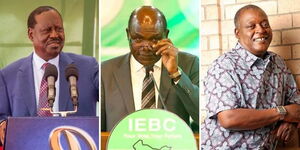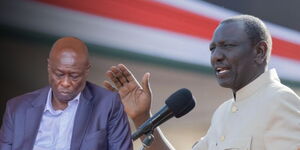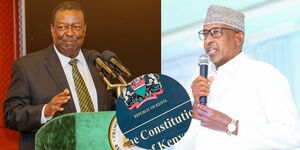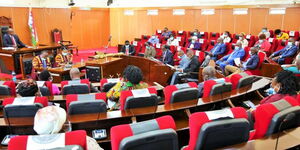Former Deputy President Rigathi Gachagua has formally resigned from the ruling United Democratic Alliance (UDA) party, seven months after he was impeached.
Gachagua's resignation came ahead of the anticipated launch of his political vehicle this week, even as the 2027 General Election race continues to take shape.
"By a copy of this letter, you are notified that I have officially resigned from the UDA Party with immediate effect," Gachagua said in his letter.
In his letter, Gachagua detailed reasons behind his resignation as he accused the Kenya Kwanza government of betraying Kenyans by ignoring the party's founding promises.
The former DP specifically referenced the Kenya Kwanza's manifesto, which made several promises, including ensuring unity of the country, prosperity, justice and economic inclusion. Gachagua claimed those promises were not only broken but had been replaced by what he termed as "retrogressive philosophy".
While pointing to the five pillars of the Kenya Kwanza development blueprint — Agriculture, MSMEs, Housing, Healthcare, and the Digital Economy, the former DP described them as now "centres of crime with no tangible gains".
The former DP further singled out sectors which he claimed had failed, including agriculture, healthcare and housing.
In January, the UDA dealt Gachagua a blow after officially gazetting his ouster as deputy party leader, replacing him with his successor in the DP's office, Kithure Kindiki. This followed a meeting of UDA's National Executive Committee (NEC).
However, Gachagua was never formally removed from the party, despite his impeachment in October 2024.
His resignation comes even as the issue of who is the legitimate deputy president of Kenya continues to generate heat following a court ruling last Friday. On Friday, May 9, the Court of Appeal found that Deputy Chief Justice Philomena Mwilu acted outside her mandate when she assigned judges to listen to petitions regarding Gachagua's ouster.
In the judgment, a panel of three appellate judges ruled that Justice Mwilu had no legal authority to form a bench to preside over the matter, as, according to the constitution, that responsibility lies with the Chief Justice.












